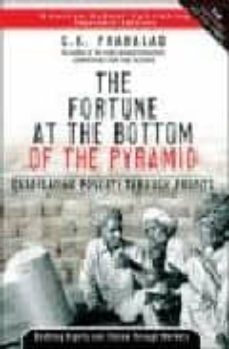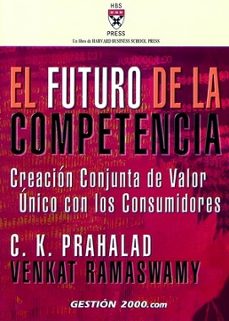Imprescindibles
Ficción
No Ficción
Ciencias y tecnología Biología Ciencias Ciencias naturales Divulgación científica Informática Ingeniería Matemáticas Medicina Salud y dietas Filología Biblioteconomía Estudios filológicos Estudios lingüísticos Estudios literarios Historia y crítica de la Literatura
Humanidades Autoayuda y espiritualidad Ciencias humanas Derecho Economía y Empresa Psicología y Pedagogía Filosofía Sociología Historia Arqueología Biografías Historia de España Historia Universal Historia por países
Infantil
Juvenil
#Jóvenes lectores Narrativa juvenil Clásicos adaptados Libros Wattpad Libros Booktok Libros de influencers Libros de Youtubers Libros Spicy Juveniles Libros LGTBIQ+ Temas sociales Libros ciencia ficción Libros de acción y aventura Cómic y manga juvenil Cómic juvenil Manga Shonen Manga Shojo Autores destacados Jennifer L. Armentrout Eloy Moreno Nerea Llanes Hannah Nicole Maehrer
Libros de fantasía Cozy Fantasy Dark academia Hadas y Fae Romantasy Royal Fantasy Urban Fantasy Vampiros y hombres lobo Otros Misterio y terror Cozy mistery Policiaca Spooky Terror Thriller y suspense Otros
Libros románticos y de amor Dark Romance Clean Romance Cowboy Romance Mafia y amor Romance dramatico Romcom libros Sport Romance Otros Clichés Enemies to Lovers Friends to Lovers Hermanastros Slow Burn Fake Dating Triángulo amoroso
Cómic y manga
Novela gráfica Novela gráfica americana Novela gráfica europea Novela gráfica de otros países Personajes, series y sagas Series y sagas Star Wars Superhéroes Cómics DC Cómics Marvel Cómics otros superhéroes Cómics Valiant
eBooks
Literatura Contemporánea Narrativa fantástica Novela de ciencia ficción Novela de terror Novela histórica Novela negra Novela romántica y erótica Juvenil Más de 13 años Más de 15 años Infantil eBooks infantiles
Humanidades Autoayuda y espiritualidad Ciencias humanas Economía y Empresa Psicología y Pedagogía Filosofía Historia Historia de España Historia Universal Arte Cine Música Historia del arte
Ciencia y tecnología Ciencias naturales Divulgación científica Medicina Salud y dietas Filología Estudios lingüísticos Estudios literarios Historia y crítica de la Literatura Estilo de vida Cocina Guías de viaje Ocio y deportes
C. K. Prahalad
Recibe novedades de C. K. PRAHALAD directamente en tu email
Filtros
Del 1 al 5 de 5
PRENTICE-HALL INTERNATIONAL EDITION 9780131877290
The world's most exciting, fastest-growing new market is where you least expect it: at the bottom of the pyramid. Collectively, the world's billions of poor people have immense untapped buying power. They represent an enormous opportunity for companies who learn how to serve them. Not only can it be done, it is being done--very profitably. What's more, companies aren't just making money: by serving these markets, they're helping millions of the world's poorest people escape poverty. C.K. Prahalad's global bestseller "The Fortune at the Bottom of the Pyramid," now available in paperback," "shows why you can't afford to ignore "Bottom of the Pyramid" (BOP) markets. Now available in paperback, it offers a blueprint for driving the radical innovation you'll need to profit in emerging markets--and using those innovations to become more competitive "everywhere." This new paperback edition includes eleven concise, fast-paced success stories from India, Peru, Mexico, Brazil, and Venezuela--ranging from salt to soap, banking to cellphones, healthcare to housing. These stories are backed by more detailed case studies and 10 hours of digital videos on whartonsp.com. Simply put, this book is about making a revolution: building profitable "bottom of the pyramid" markets, reducing poverty, and creating an inclusive capitalism that works for "everyone." Preface xi About the Author xix Part I: The Fortune at the Bottom of the Pyramid 1 Chapter 1: The Market at the Bottom of the Pyramid 3 Chapter 2: Products and Services for the BOP 23 Chapter 3: BOP: A Global Opportunity? 47 Chapter 4: The Ecosystem for Wealth Creation 63 Chapter 5: Reducing Corruption: Transaction Governance Capacity 77 Chapter 6: Development as Social Transformation 99 Part II: Business Success Stories from the Bottom of the Pyramid 113 Financing the Poor 115 Aravind Eye Care--The Most Precious Gift 131 Energy for Everyone 137 Agricultural Advances for the Poor--The EID Parry Story 149 Retail for the Poor 159 Information Technology to the Poor 169 The Jaipur Foot Story 187 Health Alerts for All 191 Transparent Government 201 The Annapurna Salt Story 213 Homes for the Poor--The CEMEX Story 221 From Hand to Mouth--The HHL Soap Story 235 Part III: On the Web at Whartonsp.com Video Success Stories Casas Bahia CEMEX Annapurna Salt
Ver más
Tapa blanda
PRENTICE-HALL INTERNATIONAL EDITION 9780137009275
C.K. Prahalad argues that companies must revolutionize how they do business in developing countries if both sides of that economic equation are to prosper. Drawing on a wealth of case studies, his compelling new book offers an intriguing blueprint for how to fight poverty with profitability."
Ver más
Otros
GRANICA 9788475777344
¿Dónde está el nuevo mercado más estimulante y de más rápido crecimiento en el mundo? Se encuentra donde menos se le espera: en la base de la pirámide. Millones de pobres del mundo tienen enormes capacidades empresariales y poder de compra. Se puede aprender a servir y ayudar a millones de los más necesitados de la tierra a escapar de la pobreza. Ya se está haciendo, y obteniendo ganancias. En este libro, Prahalad enseña: Por qué lo que usted sabe sobre los mercados de la base de la pirámide es erróneo. Un mundo de sorpresas, desde las pautas de consumo hasta la distribución y el márketing. Cómo librarse de la «sanción por pobreza». Cuáles son las contribuciones más perdurables que su empresa puede hacer: proporcionar dignidad, capacitación y posibilidades, y no simplemente productos. Que las corporaciones y los empresarios de la base de la pirámide pueden obtener ganancias para todos, en el contexto de un nuevo capitalismo incluyente.
Ver más
Tapa blanda
ARIEL 9788434414136
Este libro ofrece un modelo magistral de qué debe hacer hoy una empresa si desea ocupar un terreno competitivo en el futuro. Es tanto un manual para quienes pretenden grandes cambisos en la industria como una guia para crear los marcados del mañana.
Ver más
Tapa blanda
Gestión 2000 9788480889797
Pocos pensadores han detectado y definido las tendencias estrategicas con más exito que C.K. Prahalad. Ideas como la intención estrategica y las competencias esenciales han sido precursoras de su contribucion mas importante, en colaboracion con Venkat Ramaswamy -replantearse la naturaleza de la competencia como tal en la era de las redes globales.
Ver más
Tapa blanda
Del 1 al 5 de 5


























